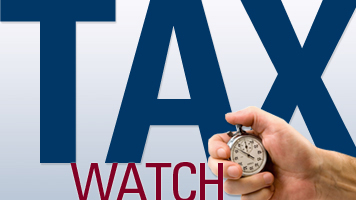
Reporting tax debts to credit bureaus could raise privacy and other issues, according to the Government Accountability Office.
IRS Considers Reporting Tax Debts to Credit Bureaus
The Government Accountability Office (GAO) has predicted that direct and accurate reporting of federal tax debts to credit bureaus could encourage certain taxpayers to more readily pay their debts. However, GAO cautioned that drawbacks to the proposal could include privacy issues and an increased burden on the IRS to report accurate tax data.
CCH Take Away: “One argument against turning tax information over in general would be to what extent does it directly or indirectly inhibit the collection of the tax debt?,” Benson Goldstein, senior technical manager, American Institute of Certified Public Accountants (AICPA), said. Goldstein offered the example of an unemployed taxpayer who owes a tax debt and requires income to pay it. That taxpayer’s prospective employers may conduct a credit report, which would reveal tax debt information that could harm his prospects of being hired.
Federal tax debts
According to GAO, at the end of fiscal year 2011, U.S. individual and business taxpayers owed $373 billion in federal tax debts to the government. Of that amount, $60 billion was in the collections process, meaning it was either in dispute or being collected under installment agreements. Approximately $110 billion, however, was classified as uncollectable by the IRS.
GAO’s investigation
The Senate Finance Committee requested that GAO compile a report on the pros and cons of a proposal to report tax information to private credit bureaus. Most federal agencies that are owed nontax debts already furnish information to credit bureaus. The IRS has refrained from directly reporting federal tax debts, due to federal privacy laws.
GAO reported that the IRS must consider the costs involved in ensuring any tax information reported was accurate and up to date because credit information is often used as a basis for denying loans, employment, and housing. GAO warned that if the IRS elected to apply the standards of the Fair Credit Reporting Act, it might face financial liability for reporting inaccurate information.
GAO also highlighted the costs IRS would incur in setting up a direct reporting process. These might include start-up and recurring information system costs, including salaries for additional staff required to manage the transmission of information, taxpayer disputes, inquiries, and other activities involved with reporting.
In addition, GAO urged the IRS to consider whether all debts, regardless of their size, should be reported to credit bureaus.
“To the extent that policymakers consider credit bureau reporting to have potentially serious negative consequences for taxpayers, they may determine that smaller debts do not warrant reporting,” GAO reported.
Finally, GAO noted that because tax lien information is public information, credit bureaus already have most of the information on tax debt.
“Liens have been filed on over half of all the dollars owed in tax debts,” GAO cautioned.
Comment: “There should be a review of how direct reporting to credit bureaus distinguishes between the tax lien process, while taking into account the benefits to the IRS of the current lien process, which attaches to a taxpayer’s property,” Goldstein said. “I’m not sure the credit bureau process gives the IRS the same leverage. And you also need to address the potential privacy concerns, should the IRS go in the direction of turning information over to credit bureaus.”
©2012 CCH. All Rights Reserved
